In this article, I will go through some of the risks of excessive attic humidity and how to monitor it. Also, I will identify all the places inside a house where humidity can cause damage. Furthermore, I will talk about the best solution to reduce the risks related to these damages. By the end of this article you will know how to perfectly monitor and protect your house against humidity damage.
From the humidity point of view the attic and the basement are the most crucial parts of the house.
Monitoring humidity and temperature in the attic
Attic acts as a buffer between the house and the roof. There are many sources of humidity in the attic and therefore many good reasons to keep an eye on it.
- Bypasses: Humid and warm air inside the house is lighter than cold air so it goes up naturally, ending up in the attic by any breach in the ceilings. Once there, the air is cooled, and vapour condenses into water.
- Ice dams: The temperature of the roof is not evenly distributed. In wintertime, the edges are usually colder than the middle because of the heat convection of the house itself. If the temperature of the middle of the roof rises above 0° C, snow melts, water flows down the roof until it reaches the colder edges, and freezes again creating an ice dam. Melted snow then gets stuck by this dam, and water starts to penetrate the roof, ending up in the attic.
- Pipes: In some houses, pipes are located in the attic. If cold water flows in them, condensation will appear on the surface of the pipes and drip onto the structure of the attic. The pipes may also leak; a very small crack is enough for significant damage in the long run.
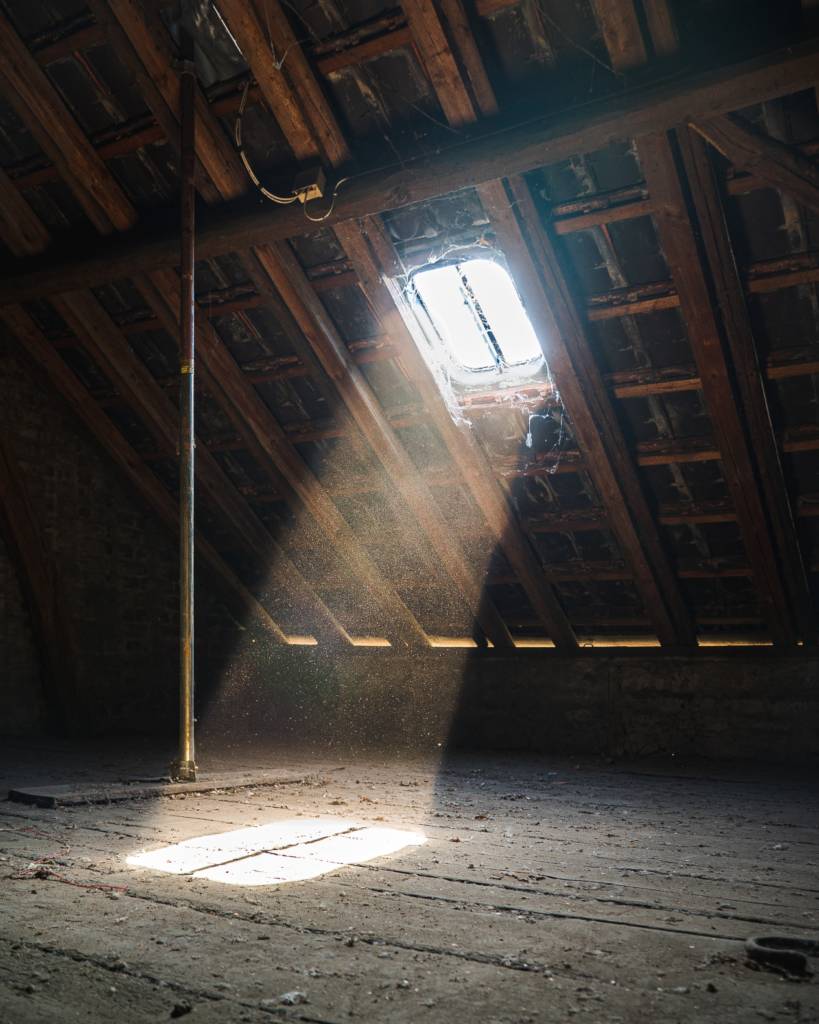
How to Identify thermal leaks in the attic
Because the insulation is normally built in between the attic and the house, the temperature in the attic should be very close to the temperature outside. If it is not, thermal leaks from the house may be suspected.
Thermal leaks cause thermal inefficiency, higher electricity bills, and accentuate the ice dam phenomenon during wintertime. Warm air reaching the attic also increases humidity.
In the same way as in the basement, high humidity in the attic first results in mould growth, which then degrades the wooden structure. If detected too late, important and expensive repairs will have to be made.
How to maintain a healthy attic?
The good news is that humidity is easy to avoid, and the solution for a healthy attic lies in a couple of simple bullet points:
- Good ventilation: it may be fan-powered or natural. There should be enough fresh air circulating in the attic to eliminate the extra moisture and to prevent it from condensing into the structure.
- Monitoring: How will you know when proper attic ventilation conditions are achieved? Optimal humidity and temperature levels are easy to monitor with RuuviTag Bluetooth sensors. Because of their extended battery life, they are the perfect solution for hard-to-access places such as an attic.
Monitoring humidity and temperature in the basement
The basement is the very lowest part of the house. It has a buffer role, insulating the house from the ground.
Why should I monitor my basement?
To enable regular verifications, it has to be at least 30 cm high, usually 1 m at the most. Because of direct contact with moist ground and natural evaporation, air in the basement becomes very humid if the space is not properly ventilated. Excessive humidity causes mould to grow on and inside the house structure and may seriously damage it if ignored.
You should not use the basement as a storage space, to ensure good air circulation. However, electric cables and water pipes are usually found in this area. In wintertime, the temperature decreases. If it gets below 0° C water pipes will freeze, resulting in cracks. When it gets above 0° C, ice inside the pipes will melt and pressurised water will flow everywhere, flooding the basement.
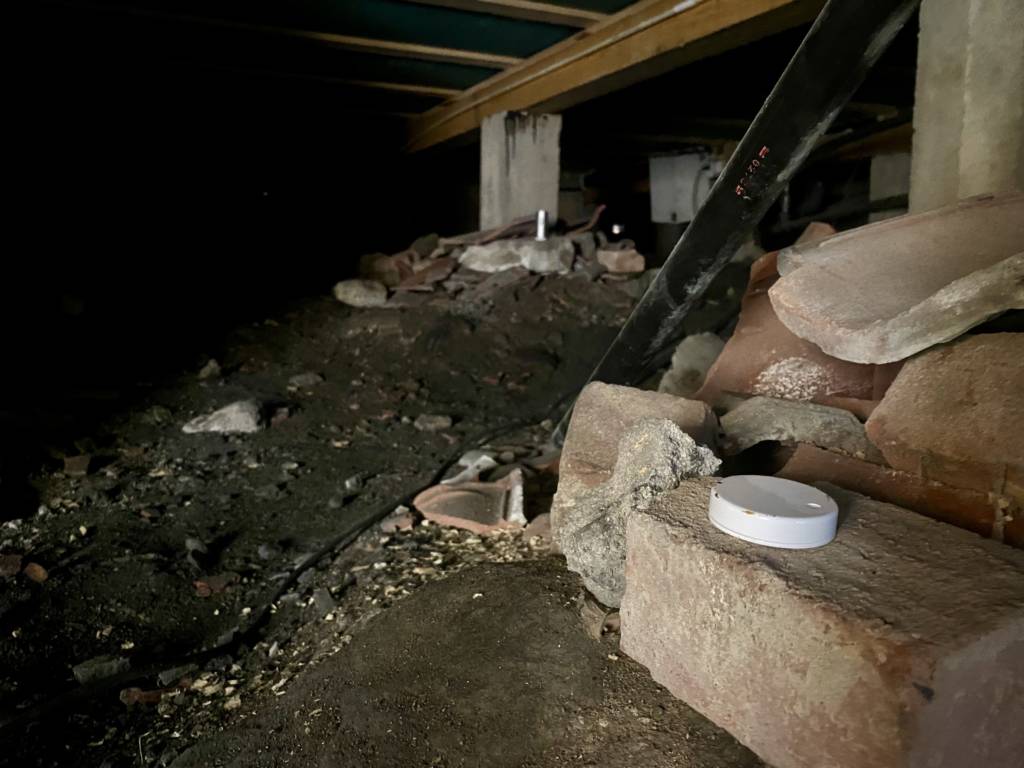
How expensive is a structural damage repair?
According to an insurance company, structural damages caused by humidity cost on average €5,000 to repair and may go up to many tens of thousands of Euros depending on the house. Furthermore, insurance does not always cover all the repair costs.
What is the best solution to monitor the basement?
To avoid these costs, both temperature and humidity monitoring are important in the basement. RuuviTag provides a wireless, cheap, and convenient way to monitor this space. Several sensors may be used to monitor the different areas of the basement, which is important because air doesn’t flow evenly in the corners or in the middle of the space. The Ruuvi Station application supports simultaneous tracking of an unlimited number of sensors.
Monitoring humidity and temperature in the house with smart sensors
In between the attic and the basement, there is the living area of the house. It is also very important to monitor the temperature and humidity here for the following reasons:
- Heating optimisation: Set a RuuviTag in different rooms of the house to see where you should use some extra heating and on the other hand, where you could decrease heating.
- Health reasons: Perfect humidity and temperature levels play important roles in respiratory disease prevention. Mould grows in humid environments. Mould is problematic for health, learn more about it here.
- Intact and safe house structures: Humidity is the worst enemy of the house structure. Some rooms, like the bathroom, are more likely to develop mould. By monitoring these rooms, you will know where you need that extra ventilation. Any ventilation system breakdown will result in an alert on the Ruuvi Station mobile app due to increased humidity.
What is the best solution for wireless monitoring of environmental conditions?
RuuviTag is the best Bluetooth thermometer and hygrometer. It measures temperature and humidity constantly, and sends the measurement wirelessly via Bluetooth.
The Ruuvi Gateway offers even more possibilities with long-distance monitoring Leaving the summer house for a long period of time? When winter comes, the same risk as for basement pipes appears in the house. If there is water in the taps or the pipes, and the temperature gets below 0° C, the installation will burst, resulting in a flood when temperatures reach above 0° C again. Track the temperature anywhere and receive an alarm if the temperature is falling below 0° C. In areas where temperatures falls below 0° C in unused houses, you should drain the water from the entire water system of the house.
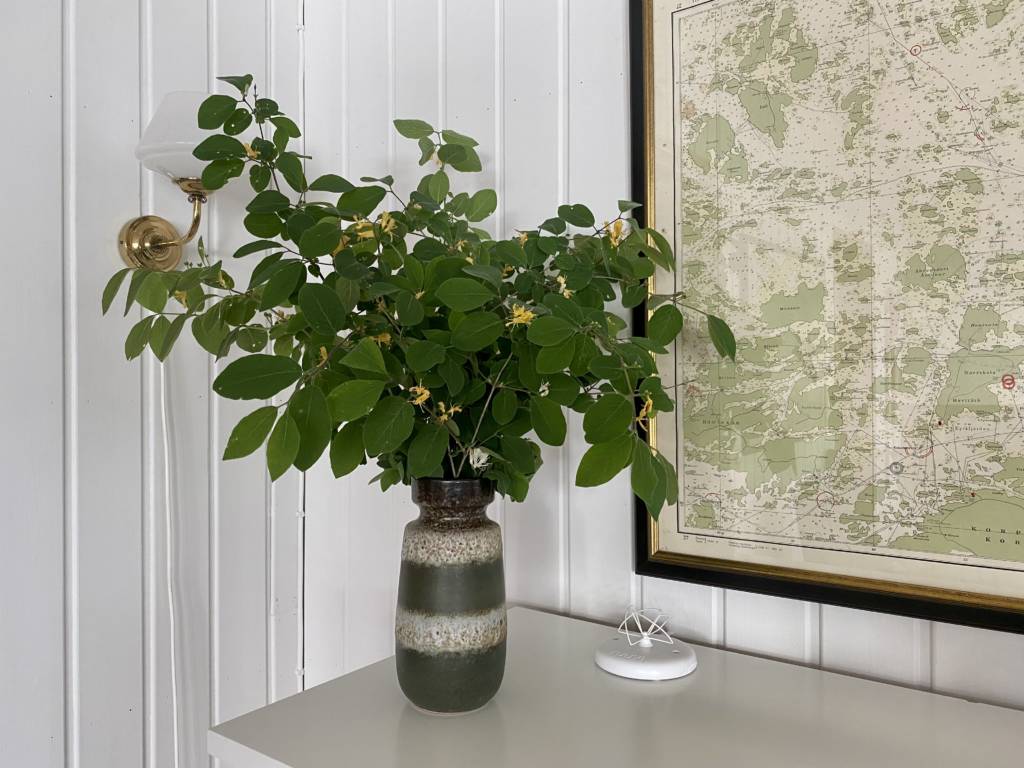
Water causes subsequent damage but fire can destroy much more in a very short time. Fire alarms work well when there is someone in the house to hear them. If the house is empty, even a close neighbour might not hear it. A RuuviTag can detect the temperature increase of the early stage of a fire and send the alarm to your phone wherever you are.
Conclusion
Get rid of many troubles and their consequences at home by using RuuviTag sensors. You will achieve significant savings, thanks to the low retail price of the sensors compared to other monitoring solutions. First and foremost, you will save money by avoiding the costs of humidity damage and heat leaks.
Buy Environmental Sensor to Your Attic
With RuuviTag you can leave the guesswork out of humidity monitoring.
39,90€
Ruuvi is based in Finland. If you’re an EU consumer, VAT is included. If you’re a non-EU customer, you don't pay VAT. If you're an EU business, insert your VAT ID at checkout.
In stock
RuuviTag Sensor (4in1)
| 5 star | 90% | |
| 4 star | 10% | |
| 3 star | 0% | |
| 2 star | 0% | |
| 1 star | 0% |
Customer Images
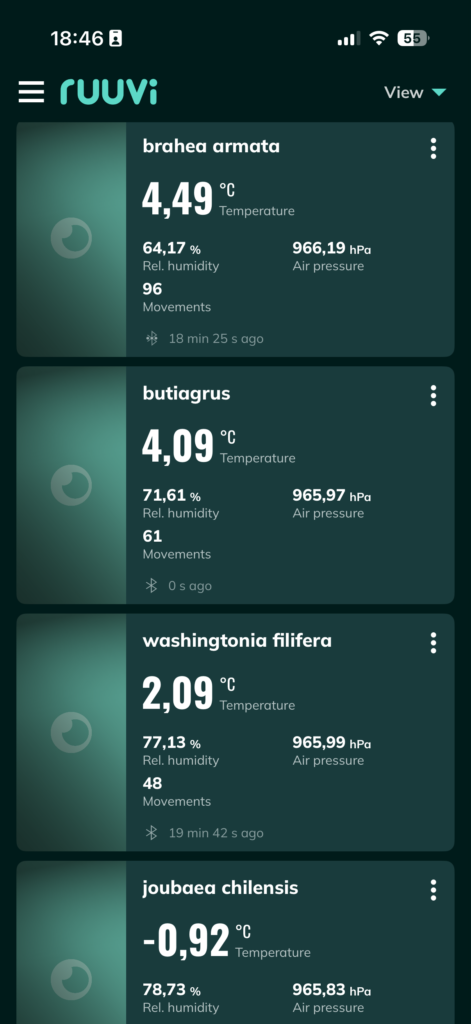
RuuviTag Sensor (4in1)
| Quantity | Unit Price(€) |
|---|---|
| 1 | 39,90 |
| 2 | 37,40 |
| 3-5 | 36,90 |
| 6-8 | 35,90 |
| 9-12 | 34,90 |
| 13-25 | 33,90 |
| 26-99 | 32,90 |
Are you looking for bigger quantities? Contact us for pricing.
FAQ
Why should I monitor humidity and temperature in my house?
Humidity is a crucial factor for ensuring a house’s well-being. Air that is too humid creates optimal conditions for mould to grow in. Air that is too dry on the other hand, leads to wooden furniture drying out. Basically, there are three main aspects to humidity monitoring: heating optimisation, health reasons and maintaining a healthy house structure.
How to easily maintain a healthy attic?
You can maintain a healthy attic by ensuring good ventilation. Also, you should monitor it with an environmental sensor in order to know that the attic conditions are within their proper limits.
What can cause humidity in the attic?
There are three main causes of humidity in the attic: bypasses, ice dams and pipes.
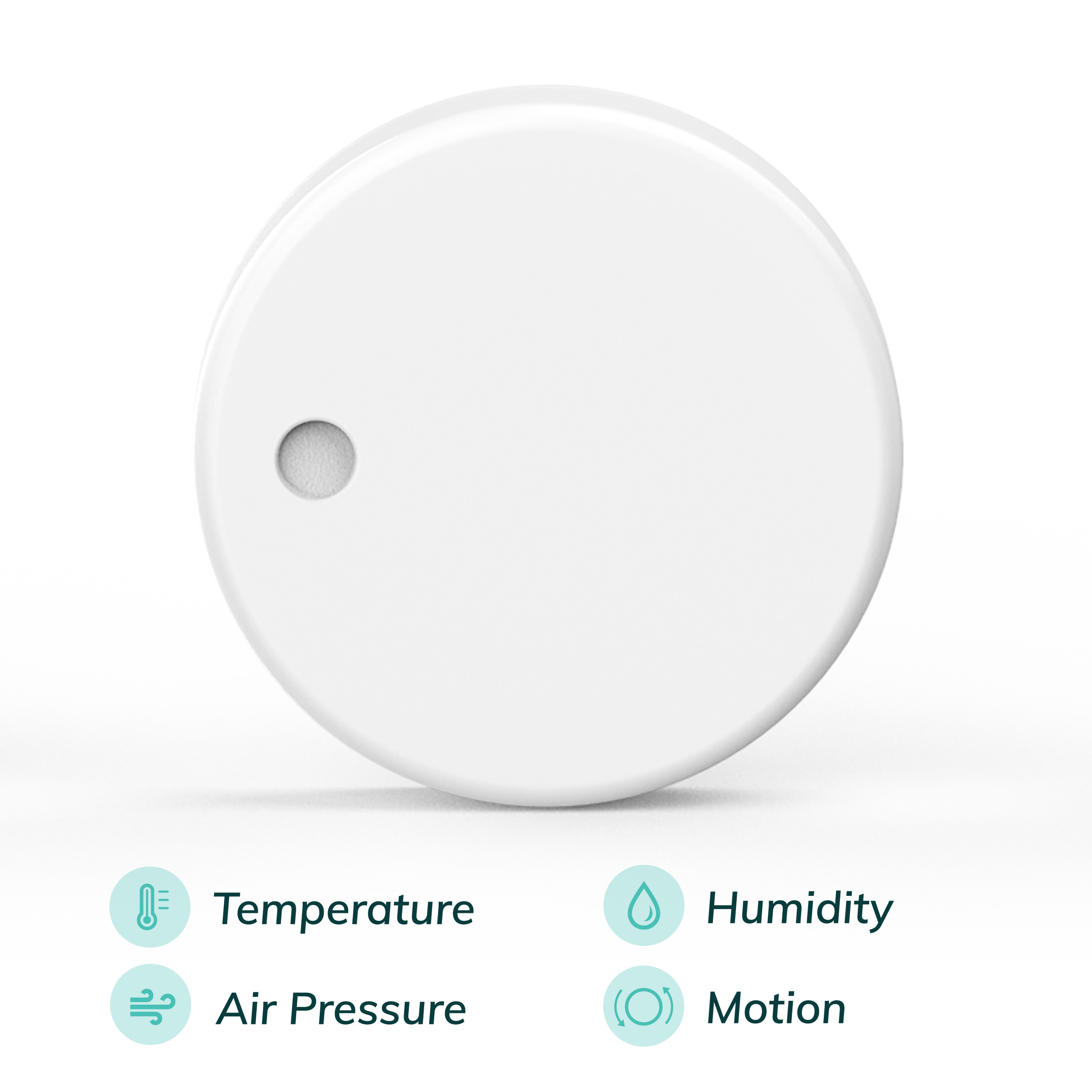
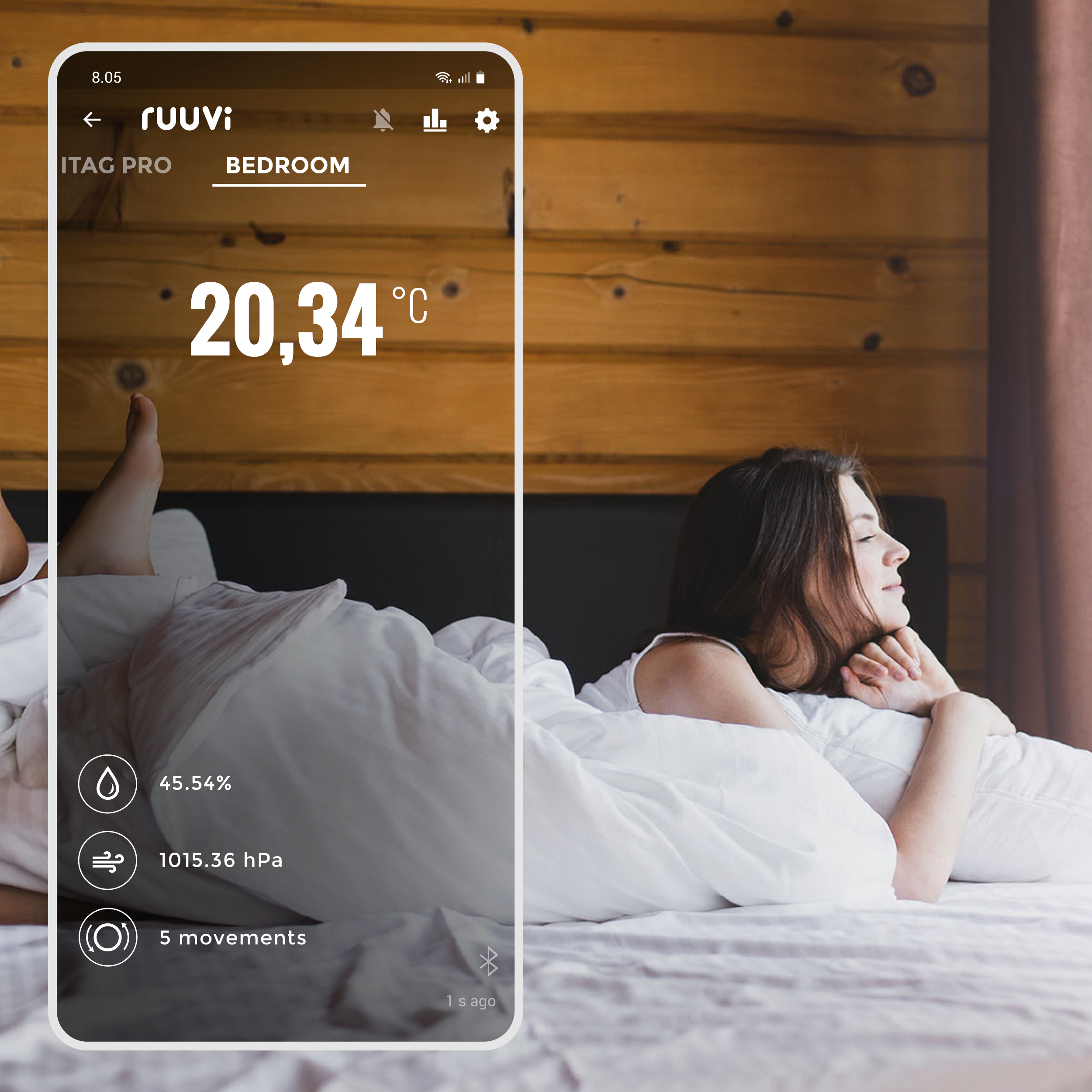
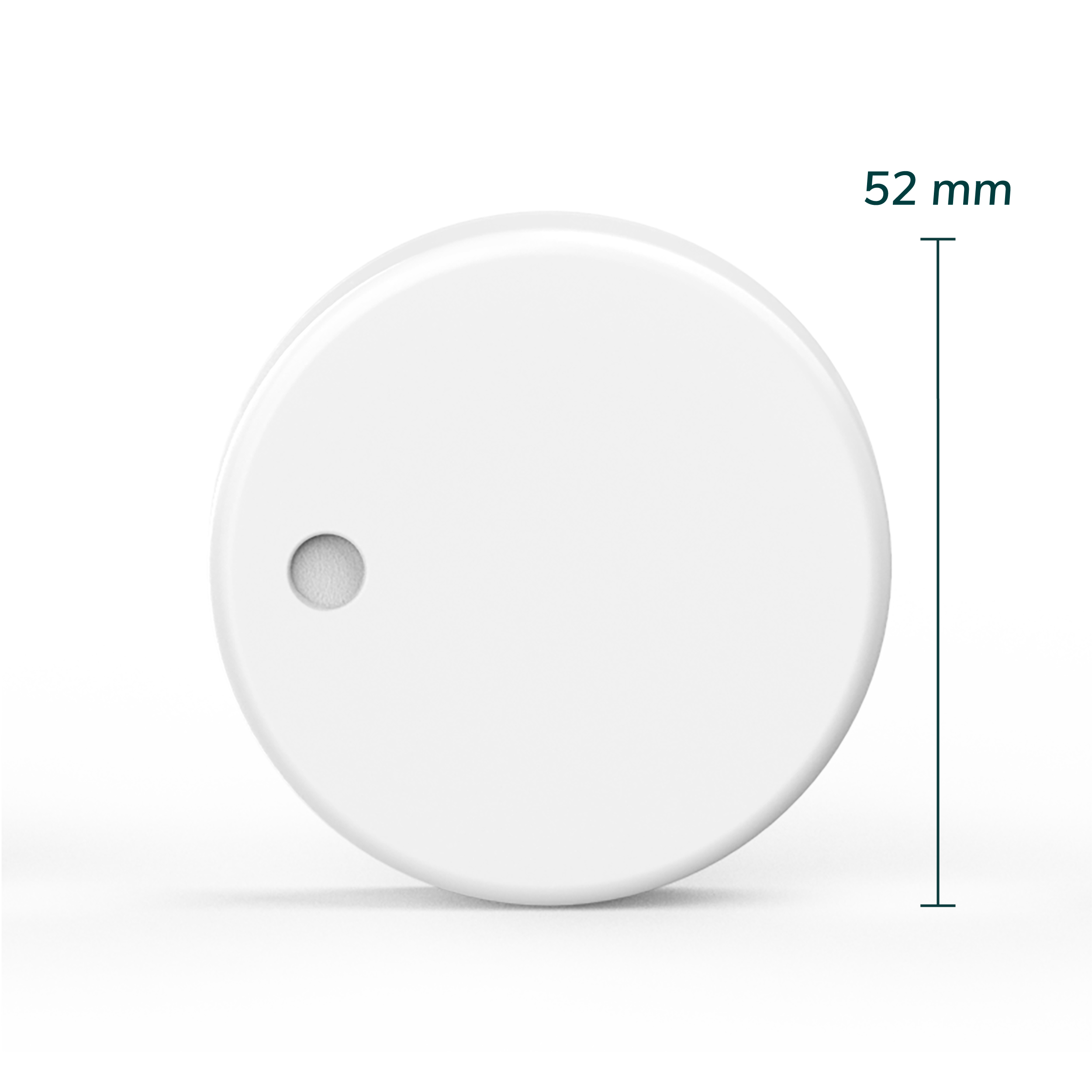
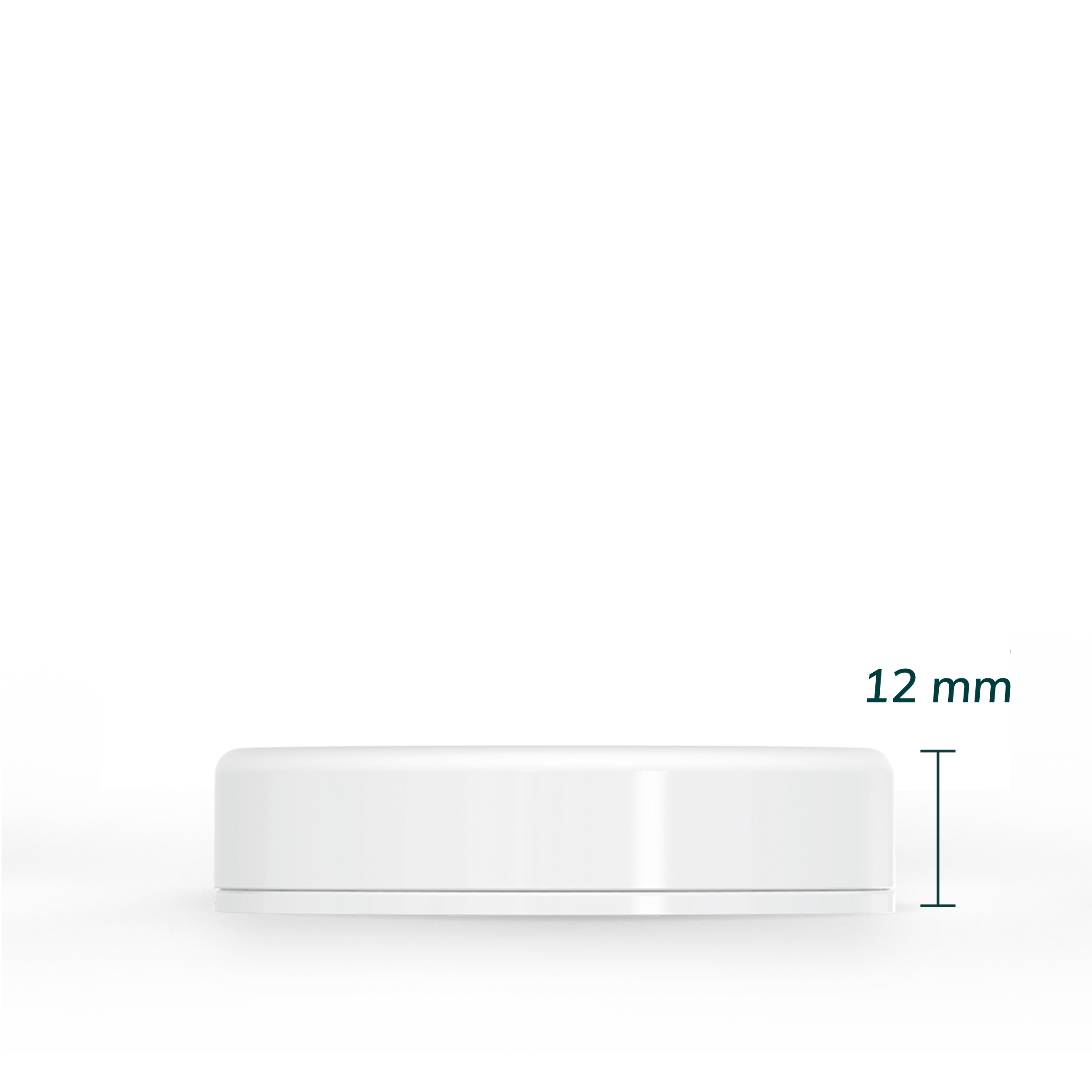
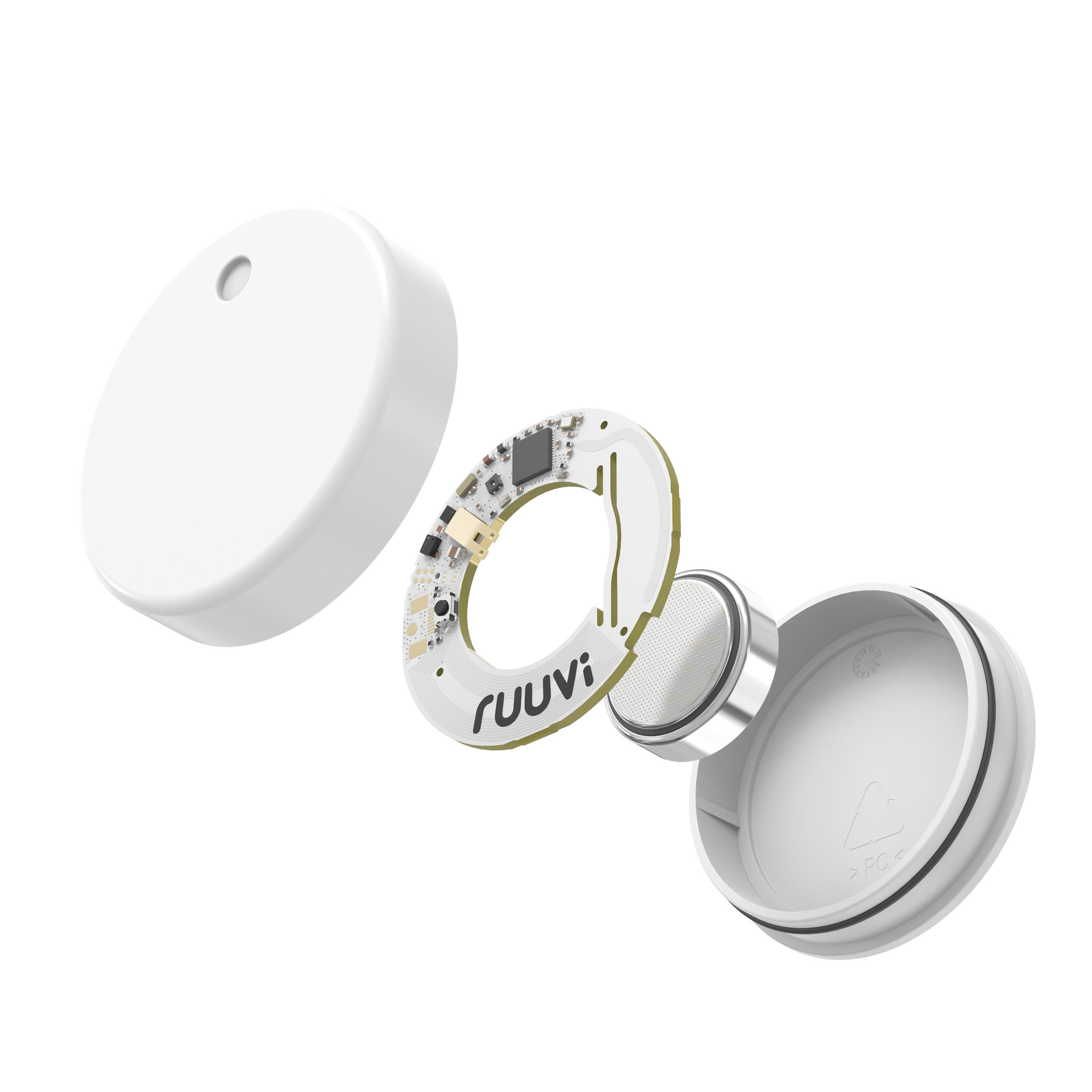
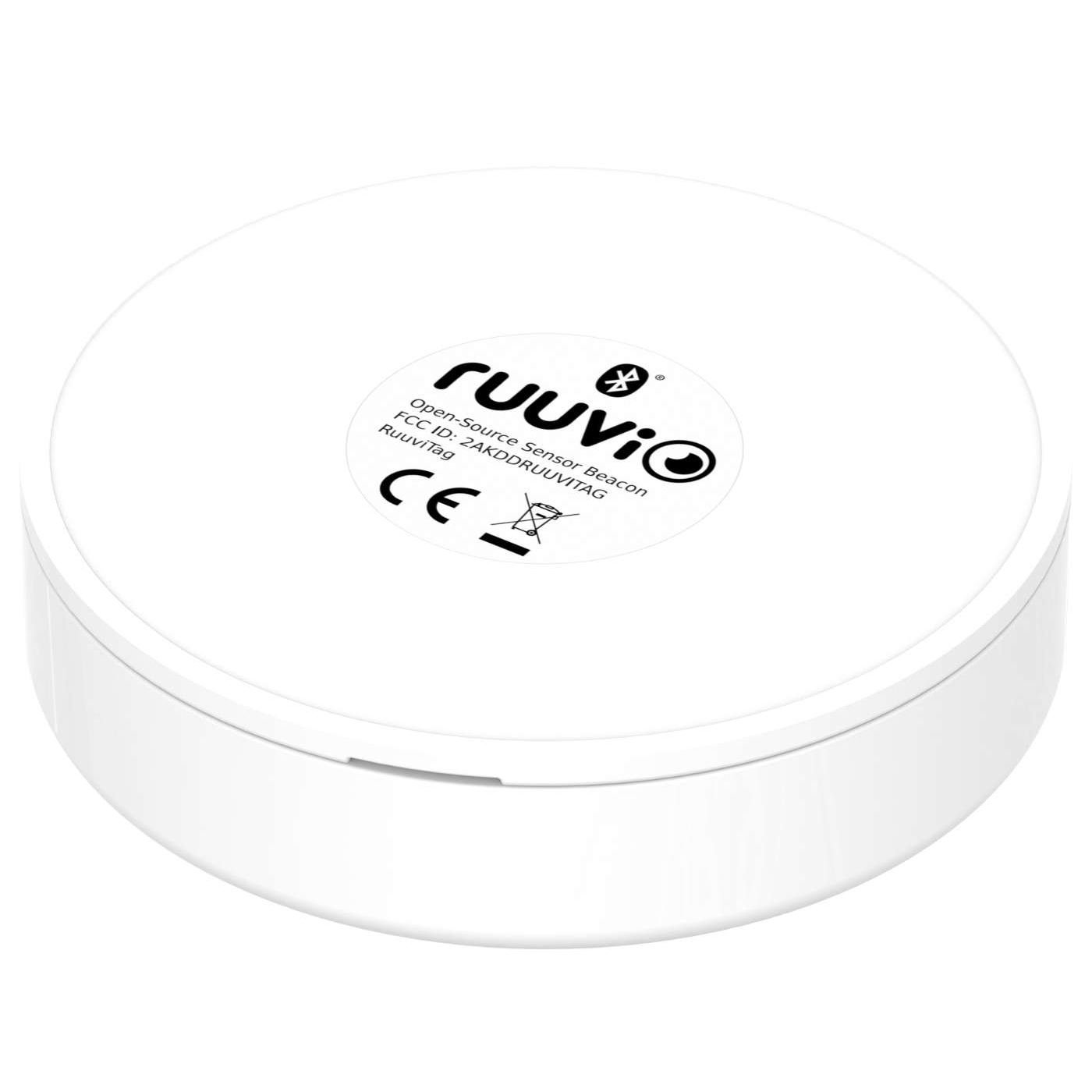
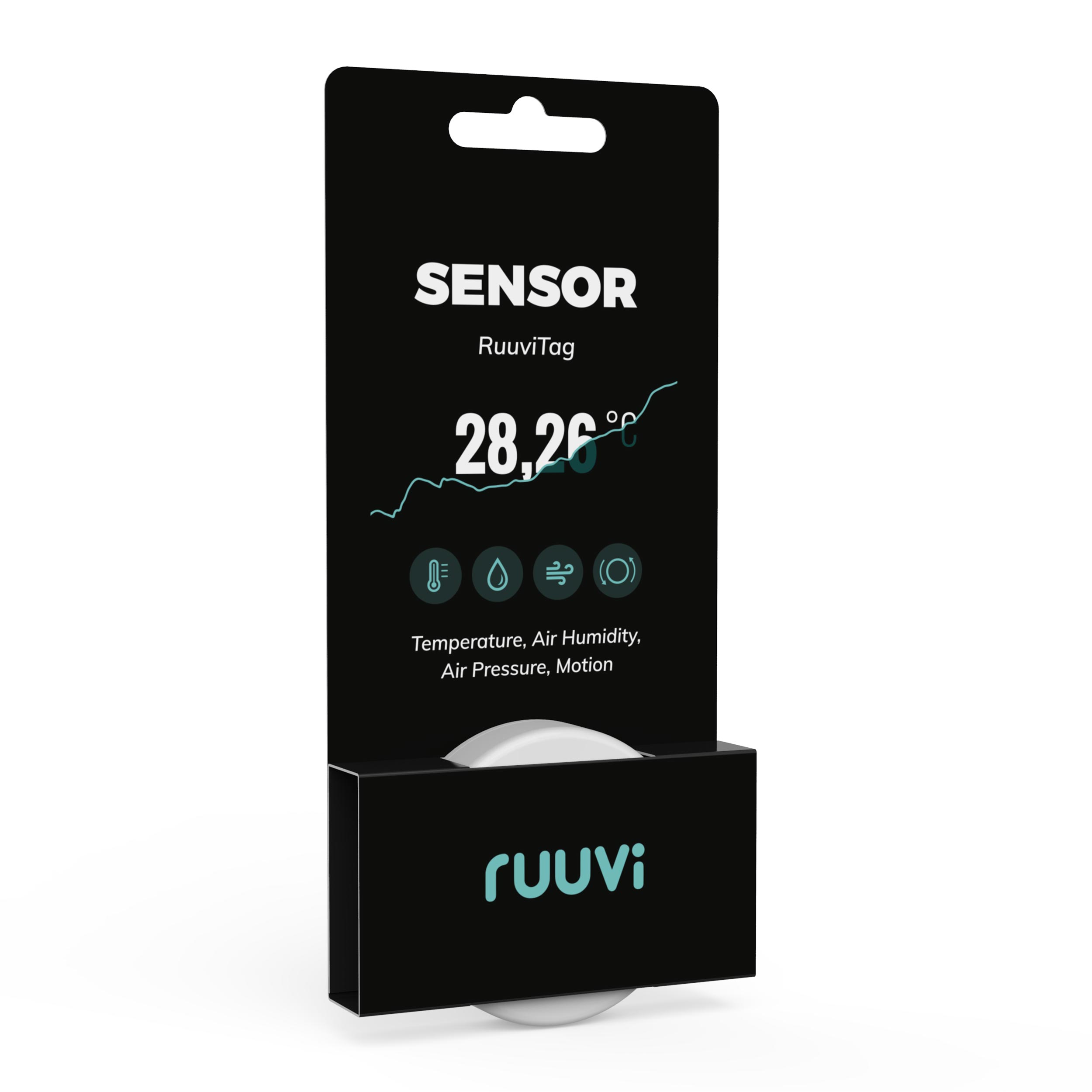
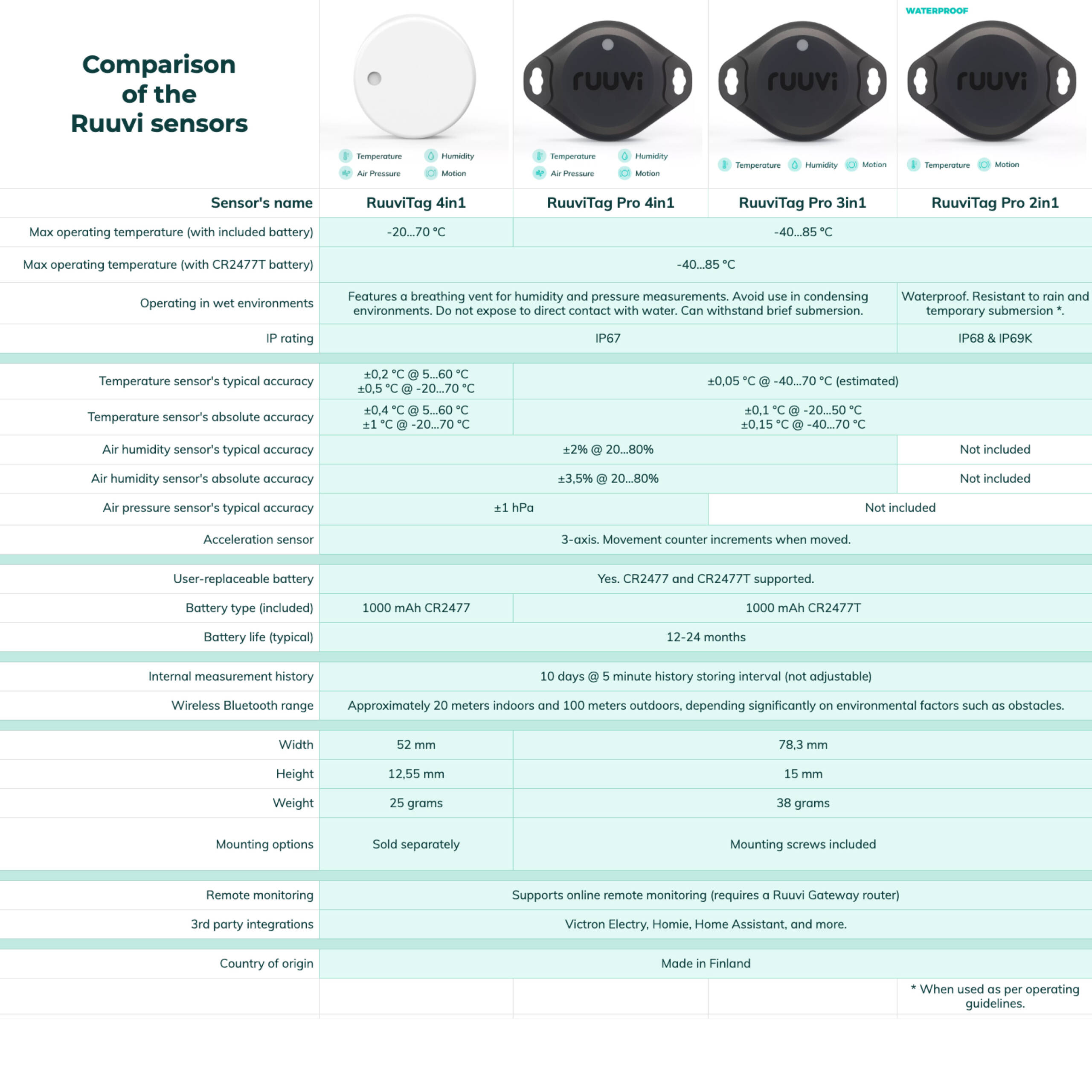

Fantastic product works great with Victron Cerbo Gx!
Immediate connectivity via Bluetooth and able to see how my palms are doing in their heated winter polycarbonate boxes temperature.
Love the RuuviTag sensors!!!
We mainly measure remotely the temperature (rantasauna, grandchildren ‘s bedroom…). Works like junan vessa.